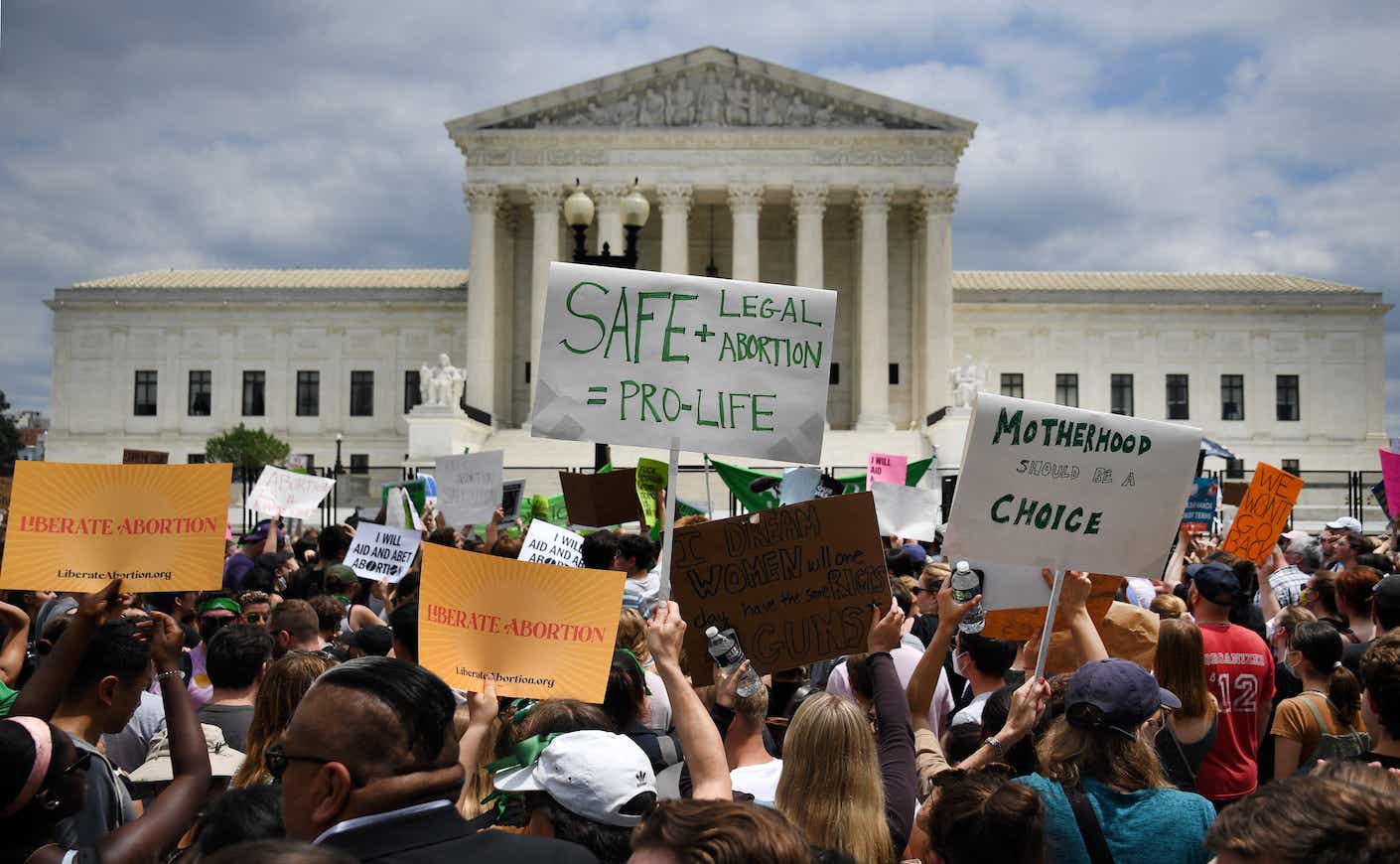Following the Supreme Court’s decision to overturn Roe v. Wade, Katie spoke to former Acting U.S. Solicitor General, Supreme Court clerk, and Constitutional law expert Neal Katyal to discuss the future of abortion rights in America.
They talk about everything from the impact of this decision and the future of abortion rights to legislative processes to overrule the Supreme Court’s decision. Katyal also shares what you can do to contribute to the legislative remedy process.
Read highlights of their conversation below, or watch the full video for everything Katyal said about the latest Supreme Court decisions and what went wrong.
The Supreme Court has just overturned Roe v. Wade, the landmark decision legalizing abortion that was handed down in 1973. What does this mean?
Neal Katyal: It fully overrules Roe v. Wade. So you have no right to an abortion in any of the 50 states. If a legislature decides that they want to criminalize it [abortion] — if they want to say that you obtaining it means you should go to jail, or someone helping you, like an Uber driver — they can criminalize it.
What will be the big picture impact of this?
If you’re in one of those states that has criminalized abortion, you can try and go across state borders to try and obtain an abortion. But some states are trying to criminalize going across state lines, in violation of the right to travel. I suspect those laws will be few and far between and I sure hope they aren’t upheld by any sort of courts.
So, it’s not an absolute ban on abortion in the United States. If you’re in one of those states that doesn’t allow it, if you have the resources then you can travel across state lines. Obviously, many women don’t have those resources.
It’s a really horrendous decision with profound real-world consequences. Right now, the world looks incredibly different than it did two hours ago, for not just women, but everyone in this country.
Is there any kind of legislative remedy to the Supreme Court’s decision? Can this be codified by Congress?
Yes. Congress can guarantee right now, with the stroke of its pen, Roe v. Wade rights for every person in this country. It takes a majority vote in both. I know the Republicans will say it should take a filibuster and 60 votes and they don’t have 60 votes.
But my view is we already broke the filibuster requirements for the nomination of these three Republican nominees to the Supreme Court. They only got 51 plus votes. And given that their most important decision is overturning Roe v. Wade, it sure seems to me, it’s an easy case to not have the filibuster apply to the much more modest step of this legislation to codify Roe. If you can do it for the big thing of a Supreme Court nomination, how can you not break the filibuster for a smaller, but very, very important thing guaranteeing the right to safe and legal abortion in this country?
I don’t think it’s going to be easy. I think it’s going to be hard. I’m saying it should be 51 votes, not 60.
We have a Democratic majority in the Senate when you consider the Vice President’s vote — and we should use it, this is what it’s for. I guarantee you, if the shoe were on the other foot, and the Republicans were in this position, of course, they would be doing everything in their power, just as they did to block the confirmation of Merrick Garland and the Supreme Court and install their own people. And this is fully within the rules, unlike what Mitch McConnell did there. So, I think we have to try and not give up right away, because there is no other solution. These justices are on the Supreme Court for their life. They’re not going away. So we have to have some other strategy. And I do think that has to involve legislation.
For people who are very upset watching this, what would you say to them in terms of anything they can do?
I do think people’s voices need to be heard in a peaceful, respectful way. I think that’s really important — to demonstrate. But I think it’s really important to call for legislation that breaks the filibuster requirement. So it’s a simple majority in the House and Senate, it’s easy to get that in the house. It shouldn’t be that difficult to get that in the Senate. But that is the legislative path. There’s no other path.
You’re not going to remove these justices from the Supreme Court that requires a two thirds vote of the Senate. So, the more modest step is a Roe v. Wade fix that guarantees those rights. That’s a lot easier to achieve than something as dramatic as packing the courts.
For more heartfelt testimony on this momentous decision, watch our interview with Paula Avila-Guillen, leader of the Green Wave Movement, which is devoted to fighting for abortion rights in Latin America:









